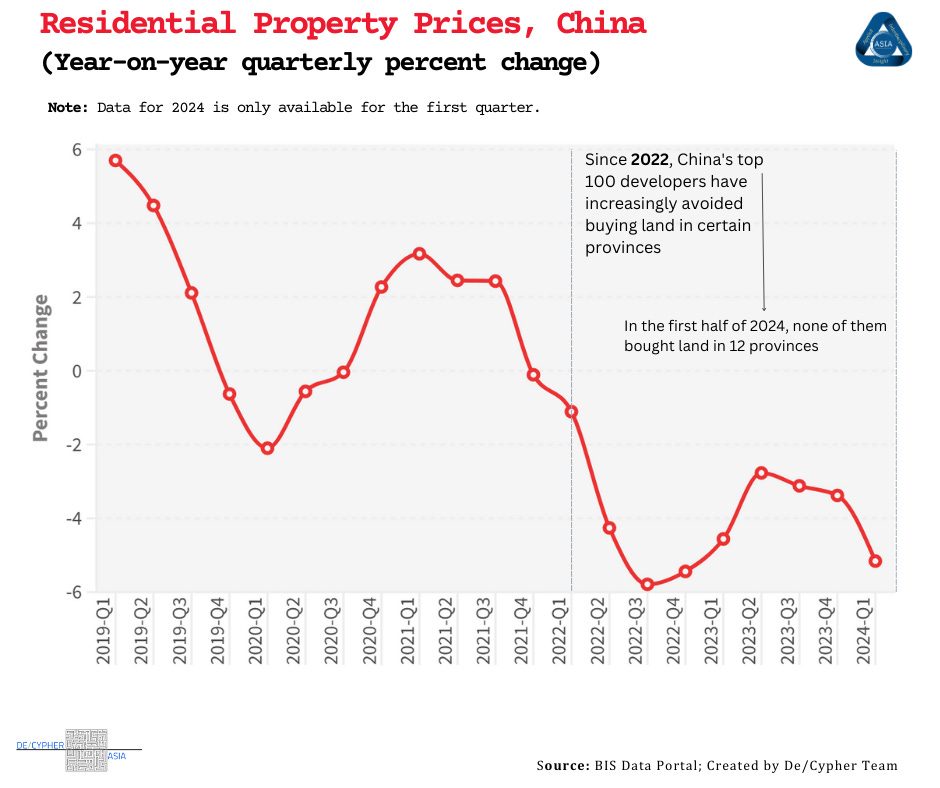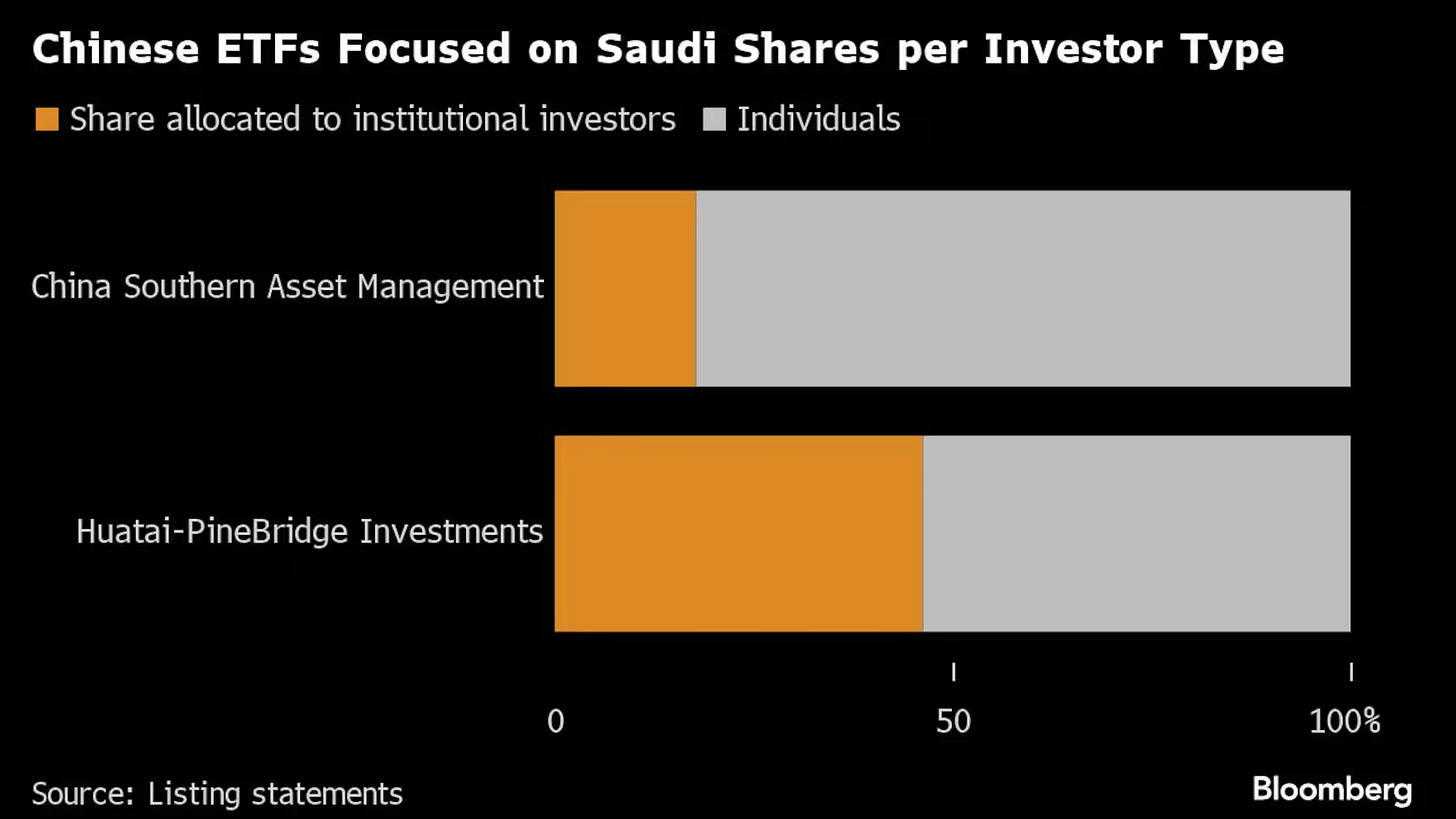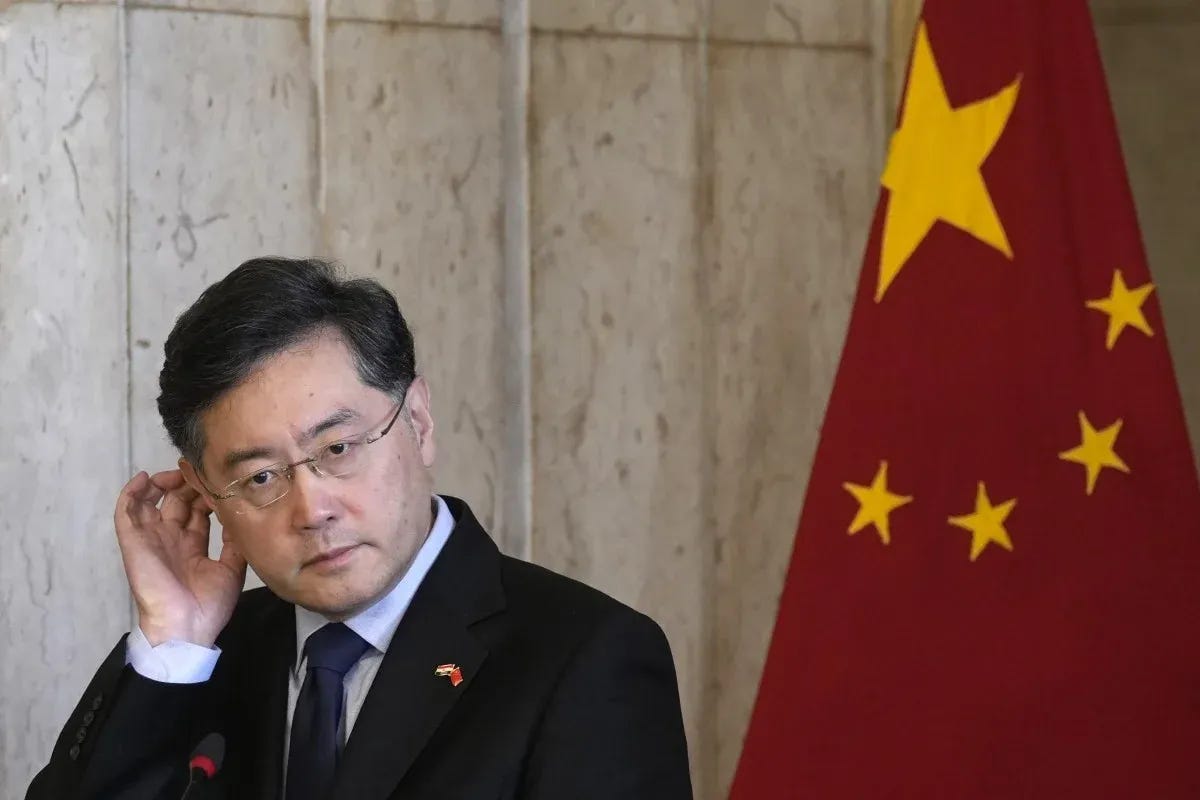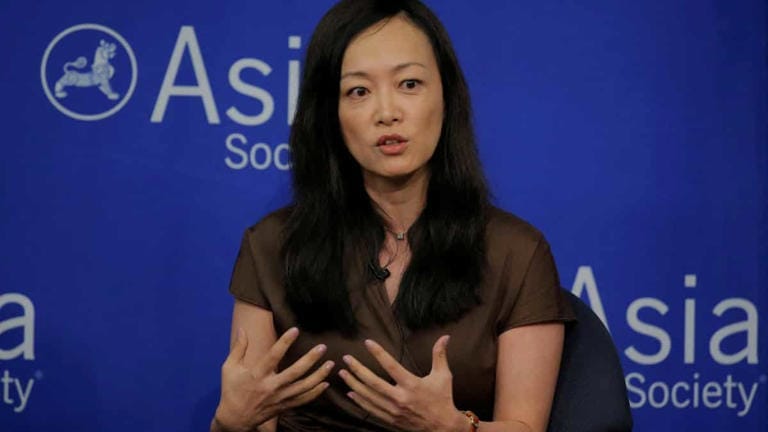Anticipation Grows: Third Plenum Updates, US-China Decoupling, and Has China Peaked?
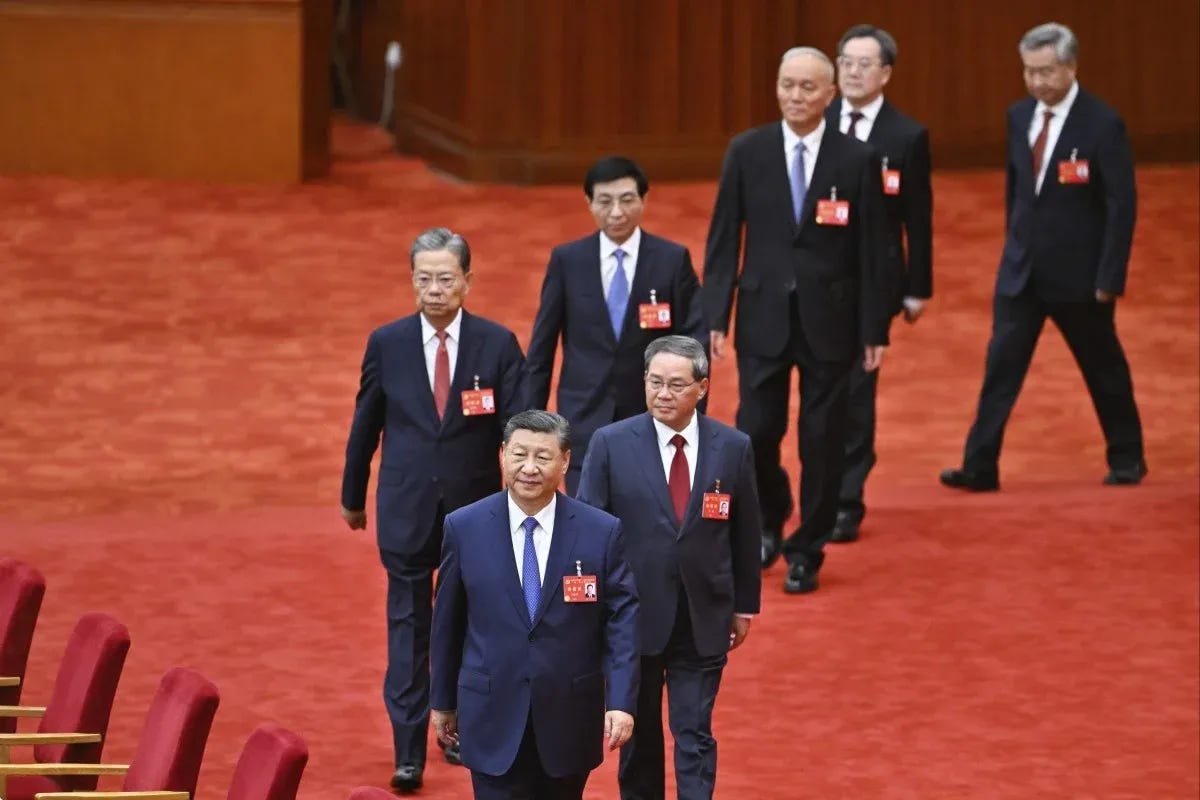
China in Quotes
“I think, Taiwan should pay us for defense. You know, we’re no different than an insurance company. Taiwan doesn’t give us anything, took our chip business. Why are we doing this? Taiwan is 9,500 miles away” while it’s “68 miles away from China.”
-Donald J. Trump on China, and Taiwan to Bloomberg Businessweek
De/Cypher Data Dive📈
Land sales in China fell 35% in the first half of this year due to declining home sales and developers' reluctance to start new projects.
Major provinces like Guangdong, Jiangsu, and Zhejiang experienced substantial drops in land revenue, with state-owned enterprises dominating land auctions, accounting for 80% of acquisitions. (Caixin)
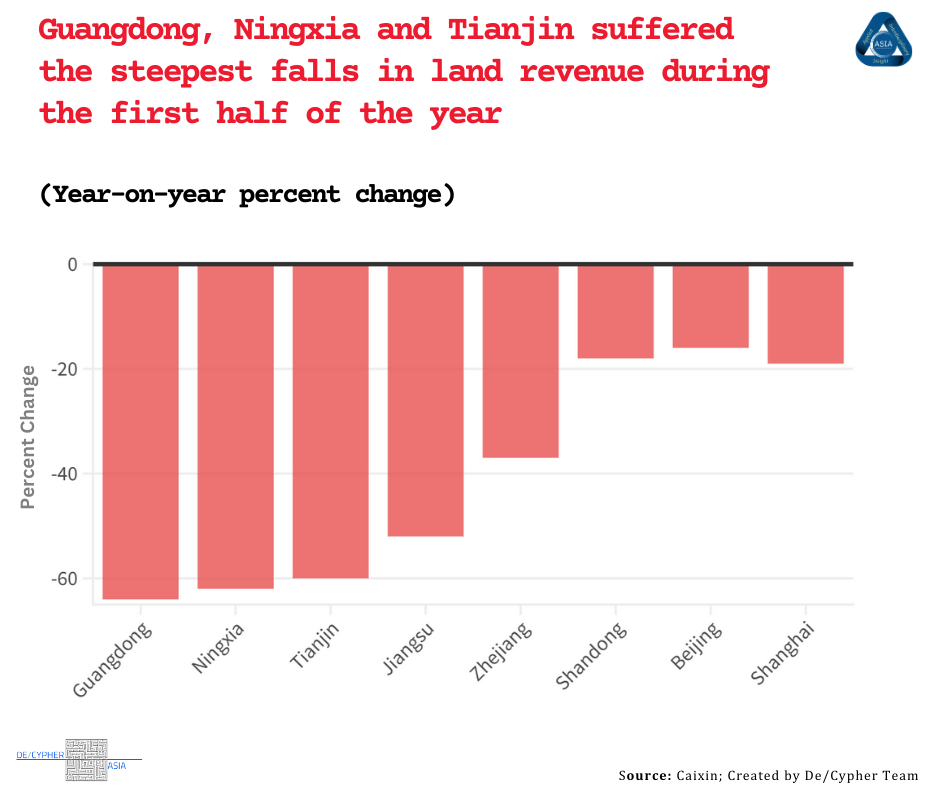
De/Cypher Signal🚥
Will China accept being cut off from Nato?
Written By Farheen, Policy & Trust Analyst, Insights from Foreign Policy, South China Morning Post, & Global Times
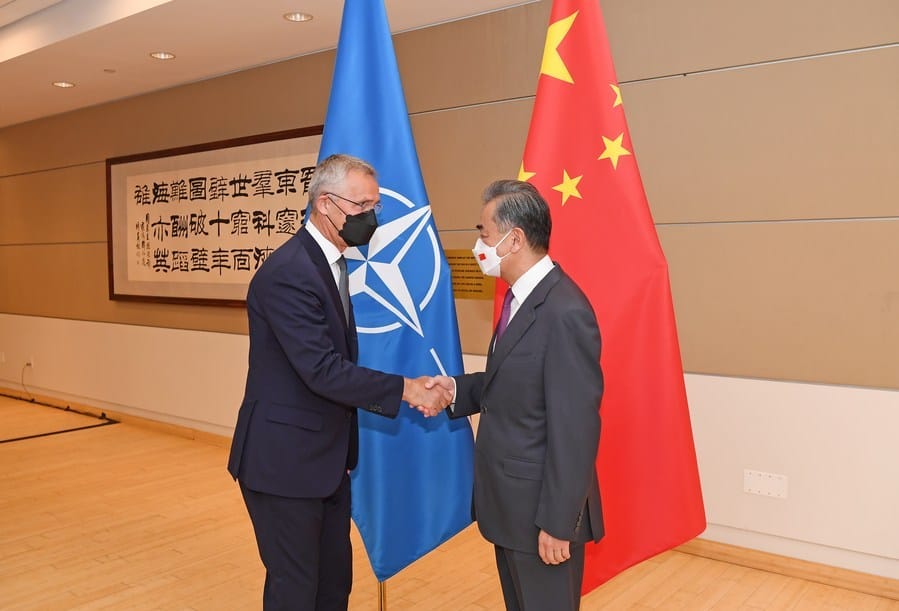
At the recent NATO summit in Washington, leaders issued a strong statement condemning China for enabling Russia's war against Ukraine. The joint declaration accused Beijing of helping Russia's defense industry, which China denies. Lin Jian, a spokesperson for the Chinese Foreign Ministry, dismissed the accusations as baseless. Despite these denials, NATO officials are considering more aggressive measures, including secondary sanctions on Chinese financial institutions that trade with Russia. Trade between China and Russia has increased since Russia's invasion of Ukraine, with Russia relying on China for "dual-use" goods such as microchips and weapons sensors. NATO Secretary-General Jens Stoltenberg emphasized that Chinese components are present in Russian military equipment used against Ukraine.
Sanctions imposed by the US and EU have targeted Chinese companies involved in this trade, but these measures have only partially succeeded. Trade data shows a decrease in high-priority dual-use goods from China to Russia, but the volume remains significant. To avoid sanctions, some Russian companies have shifted transactions to intermediaries in other countries, making it difficult to completely cut supplies. China's economic motivations complicate efforts to reduce its support for Russia. Many Chinese companies, facing domestic economic challenges, see trade with Russia as critical.
Given its strategic rivalry with the United States and NATO's expansion into Asia, China sees little reason to reduce its support for Russia. Recent sightings of Chinese military vessels near Alaska highlight the growing military cooperation between China and Russia, particularly in the Arctic and northern Pacific regions. These sightings indicate China's intention to counter the strategic agenda set by Washington and NATO. The Chinese vessels, observed by the US Coast Guard, were conducting "freedom of navigation operations" in international waters but within the US exclusive economic zone. This increased naval activity demonstrates China's desire to improve its blue-water capabilities and project naval power beyond its shores.
China has also warned Japan not to act as NATO's "vanguard" in the Asia-Pacific region in response to Japan's new defense white paper, which contains strong language about Taiwan. Beijing accused Japan of slandering China and inciting regional tension to justify bringing NATO into the region and pursuing a more aggressive defense policy.
While, NATO's united front and potential sanctions may have an impact on China's support for Russia, completely eliminating this support appears difficult. Given the complex economic and geopolitical factors at play, any measures will only partially succeed in limiting China's role in the conflict.
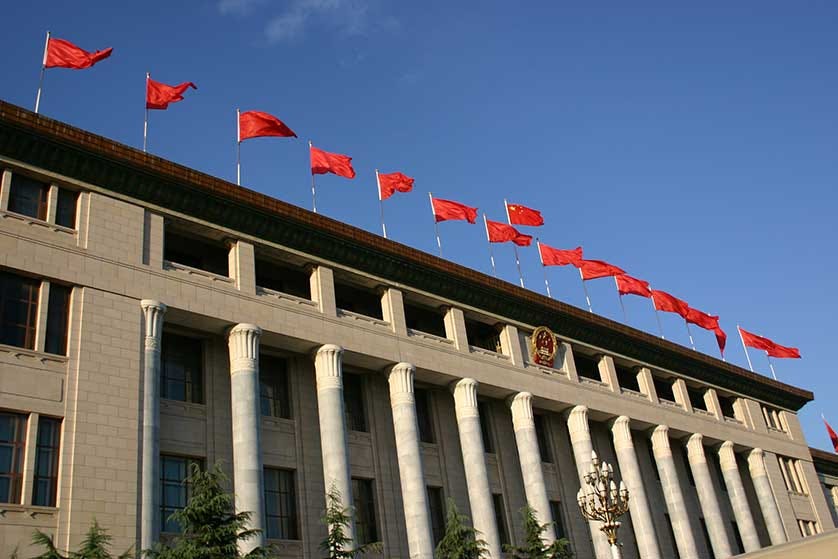
Quick China: Unmissable Stories 📜
The Big Economic Meeting in Beijing is underway and Xi might have a few tricks up his sleeve
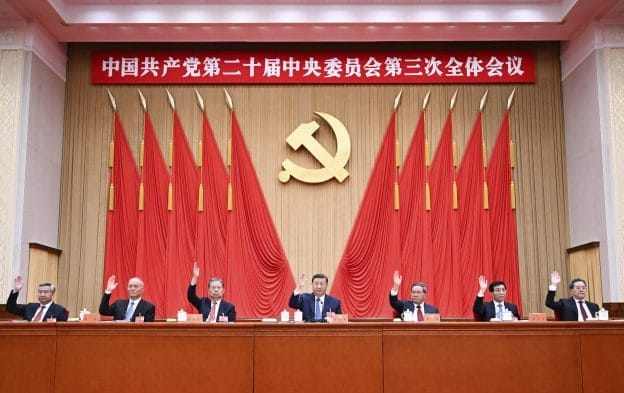
President Xi Jinping vowed to make “high-quality development” the guiding force of the world’s No. 2 economy, showing few initial signs that the top leadership is preparing to unleash major steps to boost demand or arrest the property slump. The ruling Communist Party signaled China will stay on course with Xi’s plan to use advanced manufacturing to generate growth, in a vaguely worded statement Thursday marking the close of a twice-decade conclave that’s often heralded major policy shifts. The focus on the factory engine could increase trade tensions, with a surge in Chinese exports already prompting fresh tariffs from the US and the European Union. “High-quality development is the top mission of building a modern socialist country,” the official Xinhua News Agency said after the four-day meeting in Beijing. That vague slogan is typically interpreted to emphasize the quality of economic growth over its absolute pace. It centers on Xi’s ambitions to move up the value chain through tech innovation and become more resilient against US trade curbs. (Bloomberg)
Meloni wants Beijing to invest in EV’s in Italy
Despite having left the Silk Roads initiative, Italy's prime minister is to fly to Beijing at the end of July in a bid to attract Chinese investment, notably in the electric car sector, even as the EU is trying to limit the spread of Chinese EVs on the continent. (IO)
Chinese Investors Now Eye Saudi Stocks After Beijing Rout
Chinese investors are piling into new funds tracking Saudi Arabian equities, a sign of the robust appetite for overseas exposure at a time when home markets are flagging. Two exchange-traded funds focused on big Saudi companies like Aramco and Saudi National Bank gained as much as 30% over their first three days of trade after launching this week, briefly trading at premiums of 20% over their net asset values, according to Chinese market-data provider Wind. Morning trade was halted Thursday as the funds, managed separately by China Southern Asset Management and Huatai-Pine bridge Investment, issued statements for the third day running warning investors of trading risks. “If trading blindly, investors may suffer significant losses,” they each said. Both funds ended the day lower, but remained well above their Tuesday debut levels. (WSJ)
Rare Earth Mineral Prices Are Coming Down, China Wants It That Way
The U.S. and Europe would love to cut their dependence on China for rare earths. Standing in the way of that ambition are low prices and Beijing’s willingness to throw its weight around to keep the market down.
Rare-earth prices have plummeted this year and are now hovering at roughly three-year lows. The spot price of neodymium-praseodymium, a silver-gray alloy and the most profitable chunk of the market, has fallen by almost 20% since the start of January to around $50,000 a metric ton, according to data provider Argus Media. Other rare earths are down even more.
Today, these niche minerals are mainly used in permanent magnets for a range of essential household items such as TVs, refrigerators and headphones. Increasingly, though, the magnets also help turn motors in electric vehicles, wind turbines and robots. By 2030, such high-tech products are expected to account for roughly two-thirds of demand for neodymium permanent magnets, according to Adamas Intelligence, a consulting firm focused on strategic metals and minerals. (WSJ)
China’s Tibet Policy comes in for harder look
As the latest session of the United Nations Human Rights Council was closing late last week after having adopted a review on China, U.S. President Joe Biden was signing a law on Tibet aimed at countering disinformation from Beijing.
The Promoting a Resolution to the Tibet-China Conflict Act, or Resolve Tibet Act for short, does not change Washington's longstanding policy that recognizes Tibet as part of China. The law supports Tibetans' "efforts to preserve their distinct linguistic, cultural, and religious heritage," according to Biden while urging Beijing to resume direct dialogue with the 14th Dalai Lama or his representatives and "seek a settlement that resolves differences and leads to a negotiated agreement on Tibet." (Nikkei)
Cyberspace Administration of China (CAC) faces rare setback after US$ 1 Trillion rout
By Communist Party standards, the Cyberspace Administration of China’s rise has been nothing short of breathtaking. In just over 10 years, the regulator has morphed from a singularly minded online censor into one of the country’s most powerful administrators — with oversight of both data and artificial intelligence, two pillars of future economic growth.That confusion became evident in 2021 when the CAC’s decision to force Didi Global Inc. off US bourses accelerated a $1 trillion selloff in Chinese tech stocks. Then came a surprise dictate in late 2022 on what data could be transferred beyond the country’s borders — which set off months of back-and-forth between companies and the CAC over things like how to handle hotel reservations and human resource systems.While the CAC has rolled back some of its more controversial measures — a rarity in Xi Jinping’s government — some China watchers are concerned the regulator remains a significant risk for investors. The worry is that the agency will struggle to manage Xi’s competing priorities of economic growth and national security, leading to more policy flipflops that discourage innovation and investment. (Bloomberg)
Former Foreign Minister Qin Gang Pushed Out From Top Party Body
China’s ruling Communist Party ousted former Foreign Minister Qin Gang from a top leadership body more than a year after his mysterious disappearance from public view. The party’s elite Central Committee accepted Qin’s resignation from the body, according to a communique released by the official Xinhua News Agency at the end of a twice-a-decade conclave in Beijing. No reason was given in the statement, which continues to refer to Qin as “comrade.” (Bloomberg)
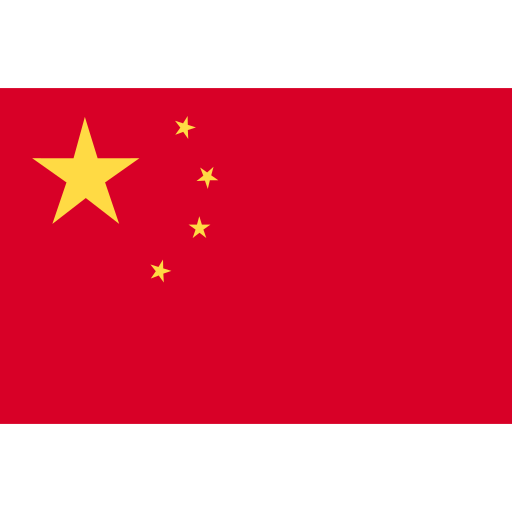
Beyond The Great Wall 🧱
Exploring News About China in Depth
Beyond Borders: US-China Decoupling
Written by Priyanka Garodia, Geopolitical Research Analyst - South Asia Insights from Foreign Policy, Harvard Business Review, AP News & Oxford Economics
The Asian Century is upon the world today and one of many reasons for this global shift in perspective to Asia has been the rise of China. The Red Dragon has emerged as a global economic powerhouse and has challenged post-Cold War American hegemony. While America has always been aware of China’s regional and global aspirations in the political field, it has also engaged with China in the economic domain. However, this engagement has seen a steady decline due to Chinese projection as a world power and the threat it poses to American supremacy. Human rights violations, democratic suppression and regional bullying - all lead to a substantial decline in bilateral relations between the two global powers.
The decline in bilateral relations between the Chinese and the Americans has led to speculations that the two will decouple their economic ties. China's share in US imports dropped from 22% in 2018 to less than 14% in 2023. However, projections by the IMF have warned that complete severance of economic relations between the two countries would be a costly affair - upto $7.4 trillion approximately the size of the French and German economies combined. The economic fallout of the US-China decoupling would be developing economies, making it a risky affair for the whole world. While complete separation in the economic realm is impossible for the US and China, both nations are exploring alternate countries for their upstream and downstream activities.
Emerging Economies as Alternatives
The economic withdrawal between USA and China has led to the exploration of other alternate centers of production and raw material sourcing. Malaysia’ island state of Penang has emerged as a major producer of semiconductor chips that have historically been imported by the US from China. Intel has even announced a major investment to expand production in Penang, clearly indicating that alternatives to China are being sought.
China, on the other hand, has begun to engage more deeply with countries like Hungary, Mexico, and Vietnam to realise its economic goals. China’s imports to Vietnam have more than doubled in recent times (approximately $138 billion). Hungary and China have partnered for a a $8 billion agreement to construct a plant for Chinese battery production. Bolivia has increased its bilateral ties with both Russia and China, harvesting lithium for various purposes. Mexico has seen an exponential increase in FDI by China, especially in the manufacturing and logistics sectors. Overall, the Chinese have begun to strategically invest in emerging countries to firstly, reduce their dependence on America and secondly build their global presence in a manner that makes antagonism against the country difficult. Most countries will benefit from the tensions between the Americans and Chinese; however, the present economic capacities of these countries will not allow sustained reliance unless structural reforms take place.
Economy
China’s Economic Growth Slows in Second Quarter
Thomas Hale writes in the Financial Times that China's economy grew by 4.7% year on year in Q2 2024, missing forecasts and slowing from the previous quarter's 5.3% growth. This slowdown, amidst weak consumer demand and a prolonged property slump, prompted policy interventions to boost confidence. Despite stronger industrial production and exports, retail sales and fixed-asset investments lagged. Economists suggest further stimulus may be needed, particularly in the housing sector, while some banks have revised down their full-year growth forecasts for China.
China Withdraws Cash From Banking System Amid Yuan Pressure
Tania Chen writes in Bloomberg that the People's Bank of China (PBOC) withdrew a net 3 billion yuan ($414 million) via its medium-term lending facility (MLF) for the fifth month, maintaining the one-year policy loan rate at 2.5%. This move, amid the Third Plenum, signals a hawkish stance to ensure financial stability. Analysts expect reforms to China's policy rate system. The decision reflects concerns over further yuan weakening and capital flight. Despite Beijing's support, the yuan has fallen about 2% this year.
China Rust Belt City Faces Growing Exodus as Workers Seek Living Wage
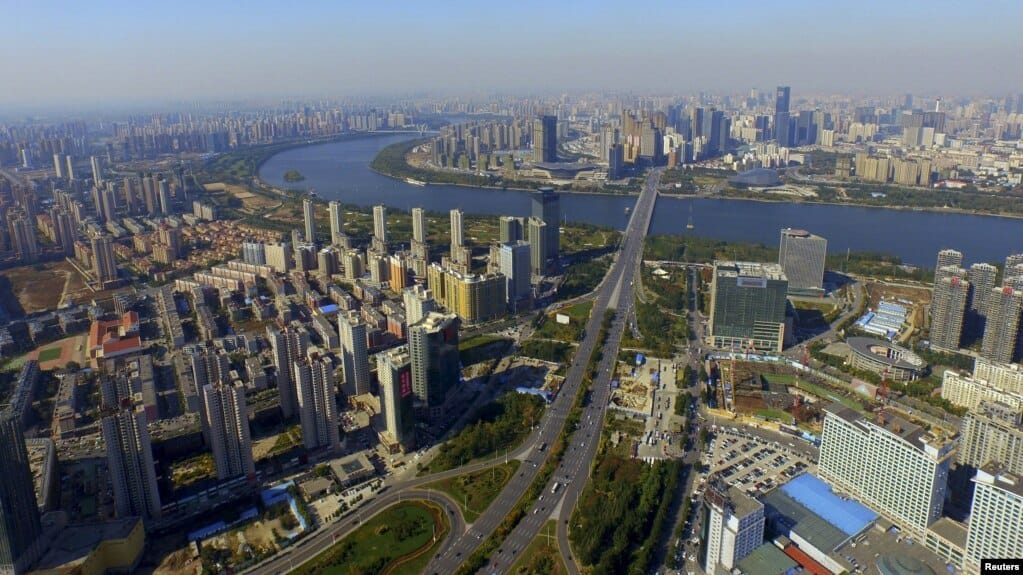
Kentaro Shiozaki writes in Nikkei that Shenyang, a once-thriving industrial city in Liaoning province, is experiencing a significant outflow of workers as the pay gap with major urban areas widens. Amid an ongoing real estate slump, the city's economic stagnation has led many to seek better opportunities elsewhere. The average monthly salary in Shenyang is about 7,726 yuan, significantly lower than in cities like Guangzhou, pushing younger residents to leave in search of higher wages and stable jobs.
Hong Kong Employees at China Financial Firms Face Pay Clawbacks
Bloomberg reports that state-backed Chinese financial firms are asking employees in Hong Kong to return portions of their bonuses as part of President Xi Jinping’s “common prosperity” campaign. China Everbright Group and China Huarong International Holdings Ltd. have implemented clawbacks affecting current and former staff. This marks an extension of austerity measures previously limited to mainland employees and raises concerns about Hong Kong's financial center status.
Trio of Chinese Shipping Giants Splurge on Over 200 New Vessels
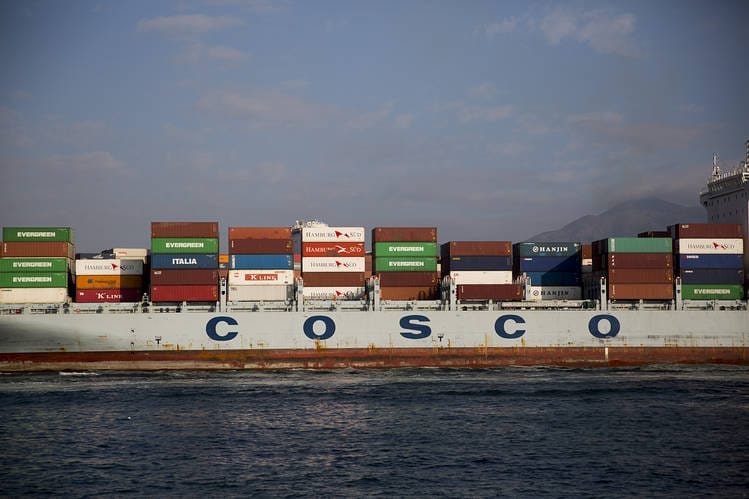
Bao Zhiming and Wang Xintong write in Caixin that three state-owned Chinese shipping giants are planning major fleet expansions. China Cosco Shipping Corp. Ltd. and China Merchants Group Ltd. (CMG) each aim to add around 100 vessels, including bulk carriers, tankers, and multi-purpose ships. CHN Energy Investment Group Co. Ltd.’s shipping arm will focus on expanding its bulk carrier fleet.
China’s Once-Booming Online Healthcare Sector Sees Its Vital Signs Sink
Zhao Jinzhao and Han Wei write in Caixin that China's online healthcare sector, valued at nearly 380 billion yuan ($52.2 billion), faces a critical juncture after almost a decade of rapid growth and downturns. Serving over 360 million people with services like web-based health consulting and pharmacy offerings, the industry must now navigate technological advancements and growing healthcare demands to secure its future prospects.
China's 30,000-Tonne Offshore Drilling Platform Installed
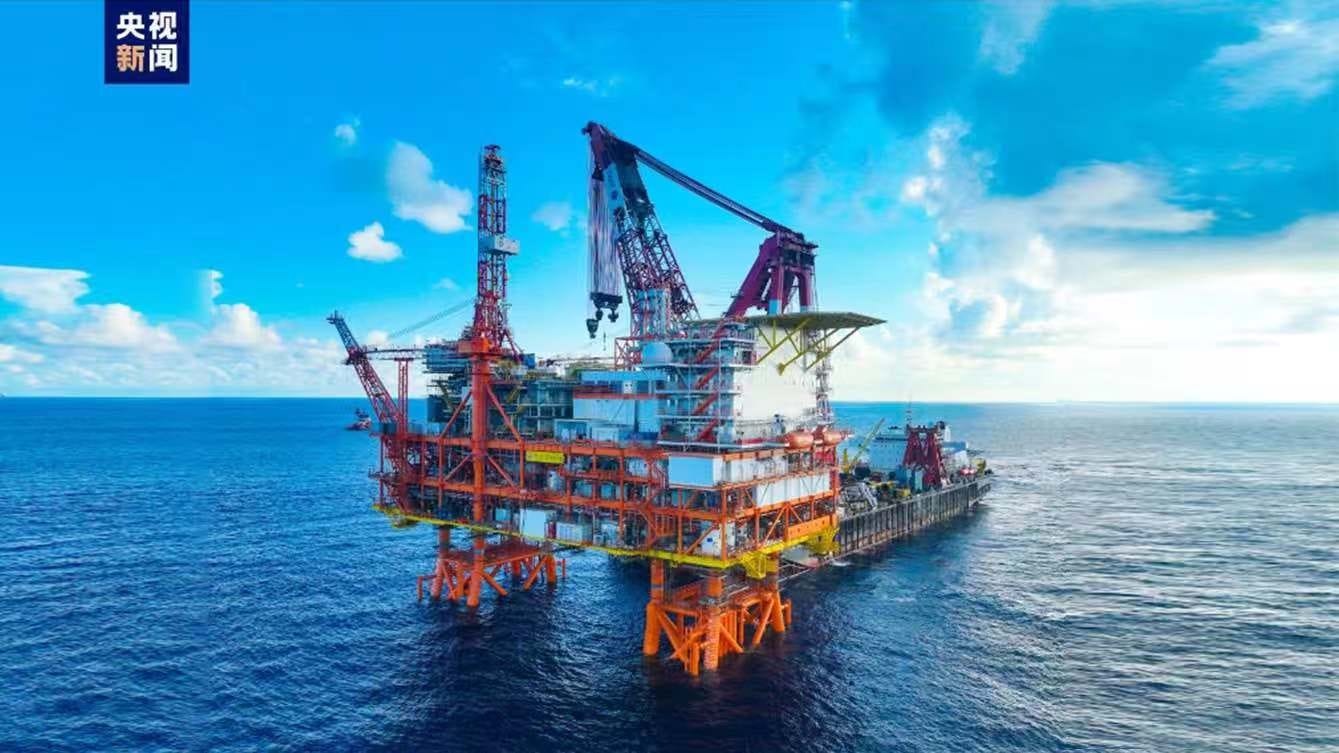
CGTN reports that China's independently developed offshore drilling platform, Xijiang 30-2B, has been installed in the South China Sea, approximately 150 to 175 kilometers southeast of Shenzhen City. The platform, weighing over 30,000 tonnes and standing at a height of 198 meters, is expected to enable the Xijiang oilfield to achieve a peak annual crude oil production of over 3 million tonnes.
Global Beauty Giants Smell Opportunity in China’s Fragrance-Makers
Feng Yiming and Wang Xintong write in Caixin that global beauty giants like L'Oreal and Estée Lauder are investing in high-end Chinese perfume brands to capitalize on a resilient luxury segment. L’Oreal has invested in To Summer and Documents, while Estée Lauder funded Melt Season. Despite economic headwinds, China's fragrance market shows strong potential, with retail sales rebounding by 15.3% in 2023. These investments aim to enhance product lines and leverage local brand appeal, with forecasts predicting significant growth in the Chinese fragrance market.
Internal Politics 🏛️
‘Garbage Time of History’: Chinese State Media Seeks to Shut Down Claims Country Has Entered a New Epoch
Amy Hawkins writes in The Guardian that Chinese authorities are countering social media discussions about China entering a "garbage time of history," a period marked by inevitable failure and economic stagnation. This sentiment has emerged amidst widespread challenges faced by the middle class, encapsulated in a viral graphic tallying "misery points" from unemployment to unfinished housing. State media and influential commentators are refuting this negative narrative, with warnings against fostering public expectations of national decline, urging a rejection of pessimistic "narrative traps" about China's economic future.
China’s Communist Party Targets Another PLA Rocket Force Chief in Corruption Investigation
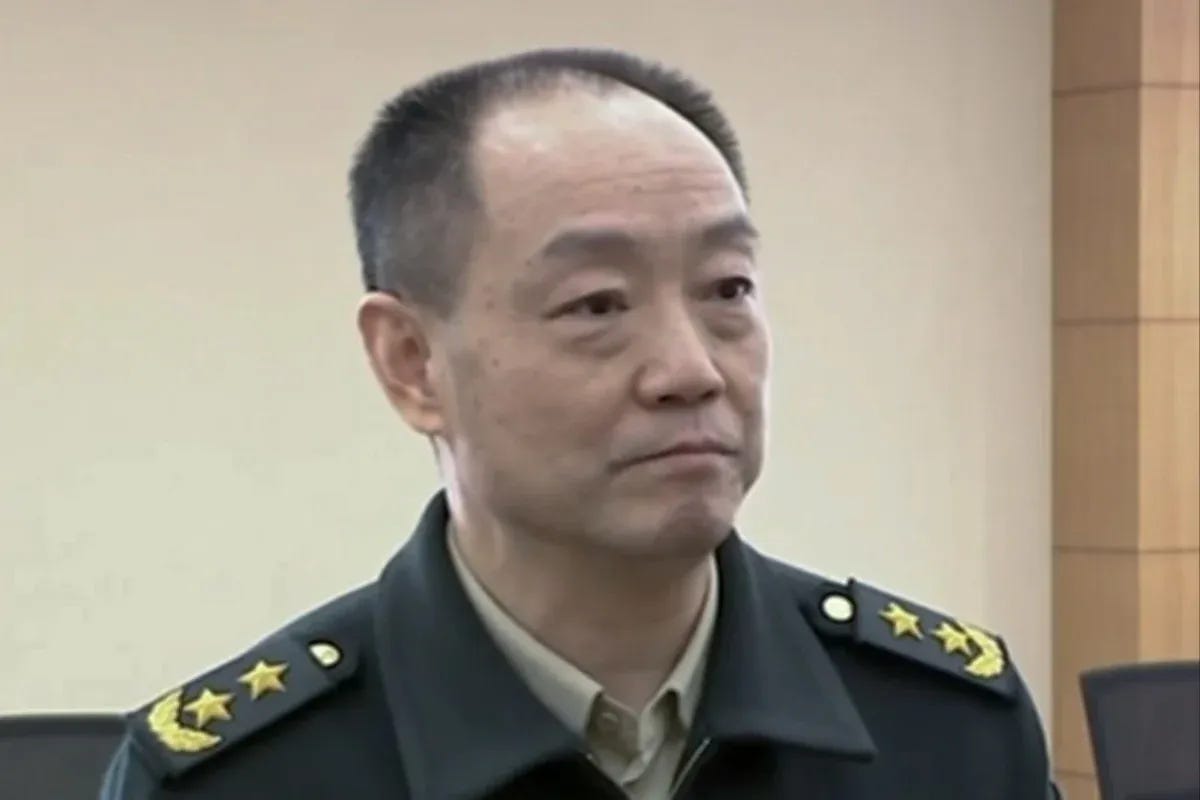
Amber Wang and Hayley Wong write in SCMP that the Chinese Communist Party has expelled Sun Jinming, chief of staff of the PLA Rocket Force, amid an ongoing anti-corruption campaign. This probe, endorsed at the party's third plenum, follows investigations into at least seven senior military officials since last year. Sun's expulsion, along with those of former commanders Li Yuchao and Zhou Yaning, illustrate President Xi Jinping's efforts to eradicate corruption within the military. The plenum also did not promote current defence chief Dong Jun to the Central Military Commission.
China And The World🌐
South China Sea: PLA Deploys New Hospital Ship to Islands and Reefs in Contested Waters

Alcott Wei writes in SCMP that China has deployed its largest hospital ship, the Silk Road Ark, to the South China Sea for its maiden mission, amid rising tensions with the Philippines. The ship will provide medical services in the Paracel and Spratly Islands, which face multiple sovereignty claims. The Silk Road Ark, serving the Southern Theatre Command, enhances the PLA Navy’s operational and battle readiness and will support medical aid, humanitarian missions, and international cooperation.
China-Russia Joint Maritime Exercise Concludes
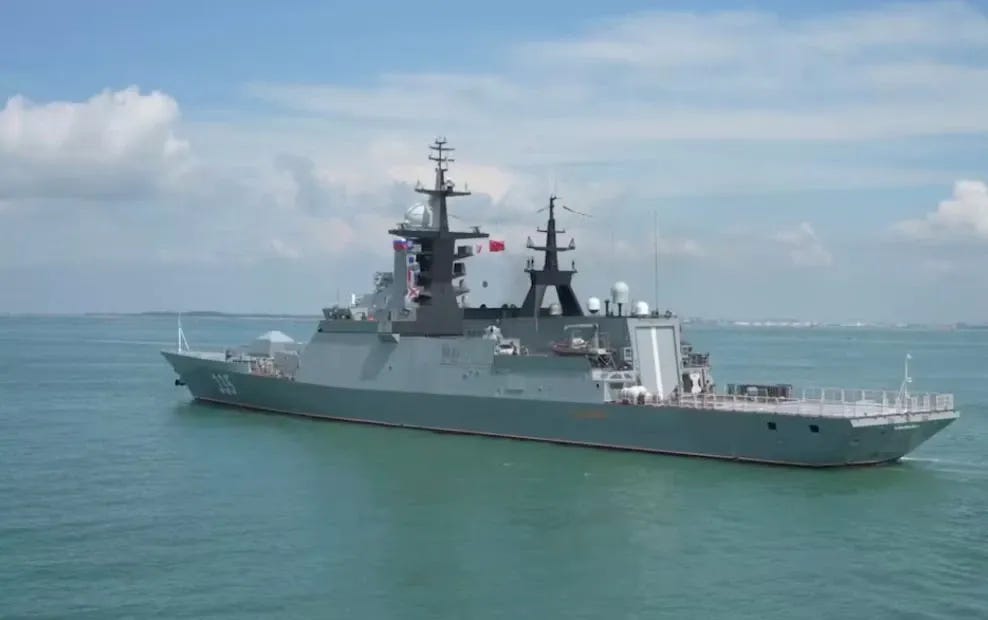
Xinhua reports that the China-Russia "Exercise Joint Sea-2024" concluded on July 17, 2024, with a fleet separation ceremony near Zhanjiang City, Guangdong Province. The exercise, focusing on "joint response to maritime security threats," involved seven vessels from both nations and included port planning, military simulation, ship tours, and live sea drills such as reconnaissance, search and rescue, air defense, and missile defense.
China Presents Its Trade Policies Ahead of WTO's Biennial Review
CGTN reports that China held a side event in Geneva to outline its economic and trade policies before the WTO's ninth trade policy review of China from July 17 to 19. The event, featuring experts from leading Chinese institutions and representatives from foreign enterprises, highlighted China's efforts in high-quality development, market unification, and private sector growth. Li Chenggang, China's WTO representative, emphasized the meeting's role in enhancing transparency and trust among WTO members. Alexander Keck of the WTO praised China's proactive approach and its role in implementing trade policy review reforms to promote dialogue and participation.
China’s Third Plenum: US Executives Eye First-Hand Insights from Economy-Centric Conclave
Kandy Wong writes in SCMP that a delegation of top US executives, arranged by the US-China Business Council (USCBC), will visit Beijing next week to gain insights following China’s third plenum. The delegation, led by USCBC president Craig Allen and FedEx CEO Raj Subramaniam, includes representatives from major companies like Goldman Sachs, Starbucks, and Nike. They aim to meet Chinese leaders such as Foreign Minister Wang Yi and Commerce Minister Wang Wentao.
China Suspends Nuclear Talks with US Over Arms Sales to Taiwan
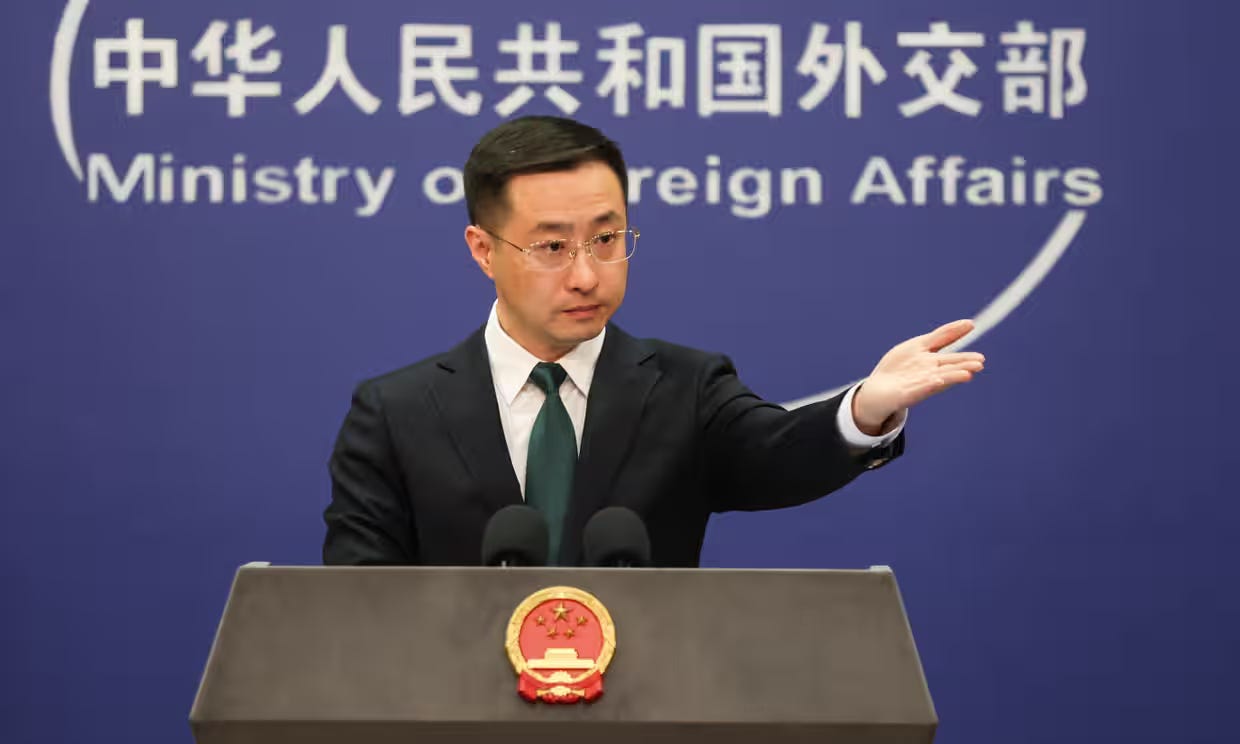
Andrew Roth writes in The Guardian that China has suspended nuclear arms control talks with the US in response to recent US arms sales to Taiwan. This suspension, announced by China's foreign ministry, halts the early stages of nuclear proliferation discussions amid escalating tensions. The US House of Representatives recently approved $500 million in military financing for Taiwan, along with loans and repair parts for F-16 jets. China's foreign ministry spokesperson Lin Jian emphasized that the US must respect China’s core interests to resume dialogue.
Russia, China Taking Space Into Dangerous Territory, US Says
Jeff Seldin reports in VOA News that US military and intelligence agencies warn that Russia and China are advancing towards deploying space-based weapons, posing significant threats to US defense capabilities. Lieutenant General Jeff Kruse of the Defense Intelligence Agency highlighted both countries' increasing intent to use counterspace capabilities, including Russia's potential to detonate a nuclear weapon in space. Despite denials from Russian and Chinese officials, US concerns persist, with General Stephen Whiting of US Space Command emphasizing China's rapid expansion and investment in space weaponry, describing it as a "kill web" targeting US and allied forces.
US Floats Stricter Trade Rules to Rein In China’s Chip Industry
Mackenzie Hawkins, Ian King, Cagan Koc, and Takashi Mochizuki write in Bloomberg that the Biden administration is considering using the foreign direct product rule (FDPR) to impose severe trade restrictions on companies like Tokyo Electron Ltd. and ASML Holding NV if they continue providing China with advanced semiconductor technology. This measure, which affects foreign-made products with any US technology, aims to pressure allies into tightening their own restrictions on China.
China to Host New Round of Hamas-Fatah Reconciliation Talks
The Cradle reports that China will host senior officials from Hamas and Fatah for reconciliation talks next week, aiming to resolve differences between the rival Palestinian factions. The meeting, led by China's foreign minister Wang Yi, will take place on July 21 and 23. Ismail Haniyeh, Hamas' political leader, and Mahmoud al-Aloul, Fatah's deputy chairman, will lead their respective delegations. Reconciliation is crucial for Gaza's post-war reconstruction, as both factions need to reach a consensus to manage the region effectively.
Exiled Chinese Billionaire Convicted of Defrauding Followers After Fleeing to US
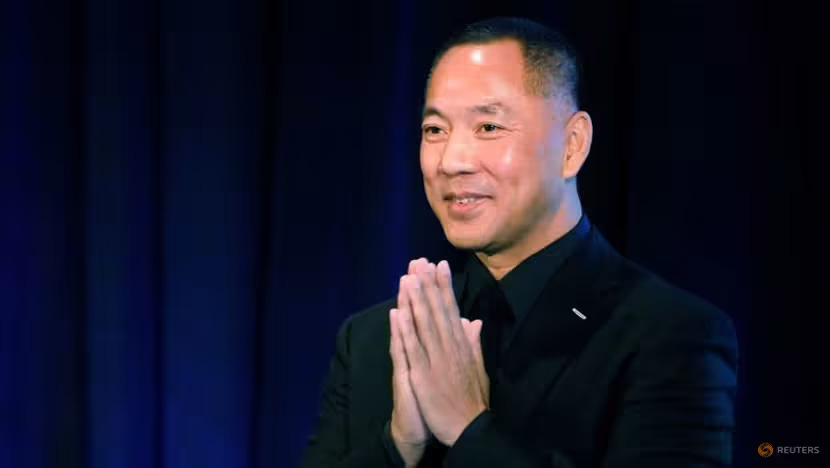
Larry Neumeister writes in The Independent that exiled Chinese tycoon Guo Wengui, known for his criticism of the Chinese Communist Party, was convicted of defrauding followers in a multiyear scheme. Guo, who fled China in 2014, was found guilty of nine counts, including racketeering conspiracy. He deceived thousands into investing in bogus ventures, using the money for a luxurious lifestyle. Guo, who sought asylum in the US, developed ties with Steve Bannon and launched a movement against the Chinese government.
Average Chinese National Now Eats More Protein Than an American: UN Food Agency
Victoria Bela writes in SCMP that according to the United Nations Food and Agriculture Organization (FAO), China surpassed the US in daily dietary protein availability per capita in 2021. China reached 124.61 grams of protein per person, slightly ahead of the US at 124.33 grams. This milestone, once deemed unlikely without harming global sustainability, was achieved through advancements in animal husbandry, agriculture, and aquaculture. China's protein supply includes a significant portion from plant-based sources, aligning with national dietary guidelines promoting more vegetables, fish, and less processed meats to ensure both health and environmental benefits.
ASML-Backed University Caught in Middle of US-China Chips War
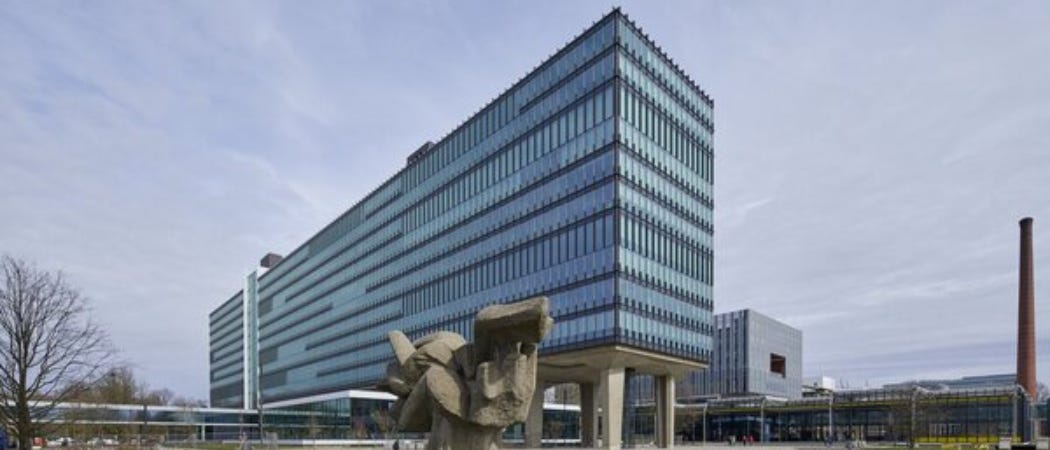
Cagan Koc writes in Bloomberg that Eindhoven University of Technology, a key feeder for ASML Holding NV talent, is under scrutiny amid the US-China chip war. The US ambassador to the Netherlands questioned the university's president, Robert-Jan Smits, about the high number of Chinese students. This comes as the Netherlands faces US pressure to restrict China's access to semiconductor technology. ASML has invested heavily in the university, which houses ASML lithography machines for research.
Tech🧑💻 in China
China Deploys Censors to Create Socialist AI
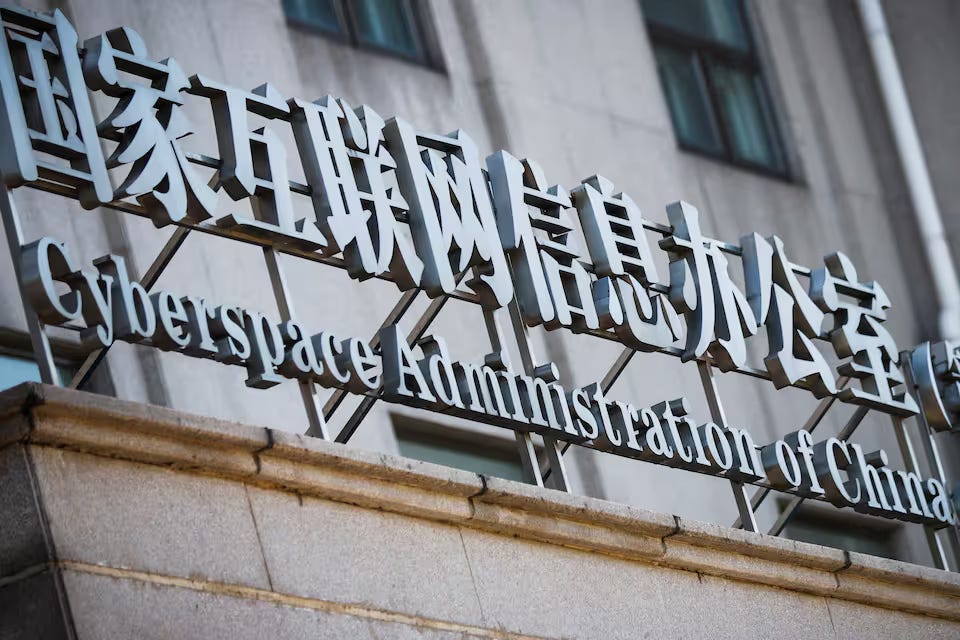
Ryan McMorrow and Tina Hu write in the Financial Times that Chinese government officials are rigorously testing AI companies' large language models to ensure they align with "core socialist values." The Cyberspace Administration of China (CAC) mandates tech companies like ByteDance, Alibaba, Moonshot, and 01.AI to undergo reviews involving questions related to political sensitivities and President Xi Jinping. The CAC's process includes auditing training data and enforcing a list of sensitive keywords updated weekly. This initiative is part of China's broader effort to regulate AI content, complementing the "great firewall" that blocks foreign websites. AI models must not reject more than 5% of questions during tests, pushing developers to create politically correct responses.
AI Model Capable of Reading Various Cancer Images
China Daily reports that a Chinese team has developed PathOrchestra, the country's first AI model capable of analyzing medical images from over 20 organs, including lungs, breasts, and liver. Developed by researchers from Air Force Medical University, Tsinghua University, and SenseTime, the model uses China's largest domestic pathology data set and self-supervised learning. Achieving over 95% accuracy in nearly 50 clinical tasks, PathOrchestra significantly enhances efficiency in disease diagnosis, particularly in cancer detection and classification.
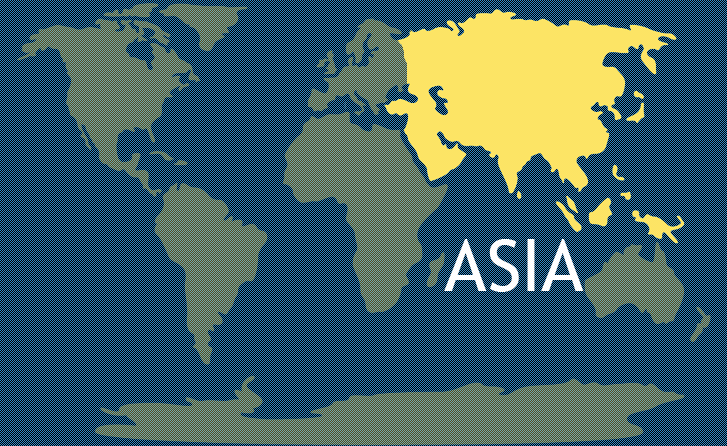
News From Asia
Friday
Vietnam’s President To Lam has been appointed caretaker of the Communist Party as the party chief Nguyen Phu Trong focuses on health issues. Lam, previously known for leading the anti-corruption campaign, is seen as the likely successor to Trong when his term ends in 2026. (AP)
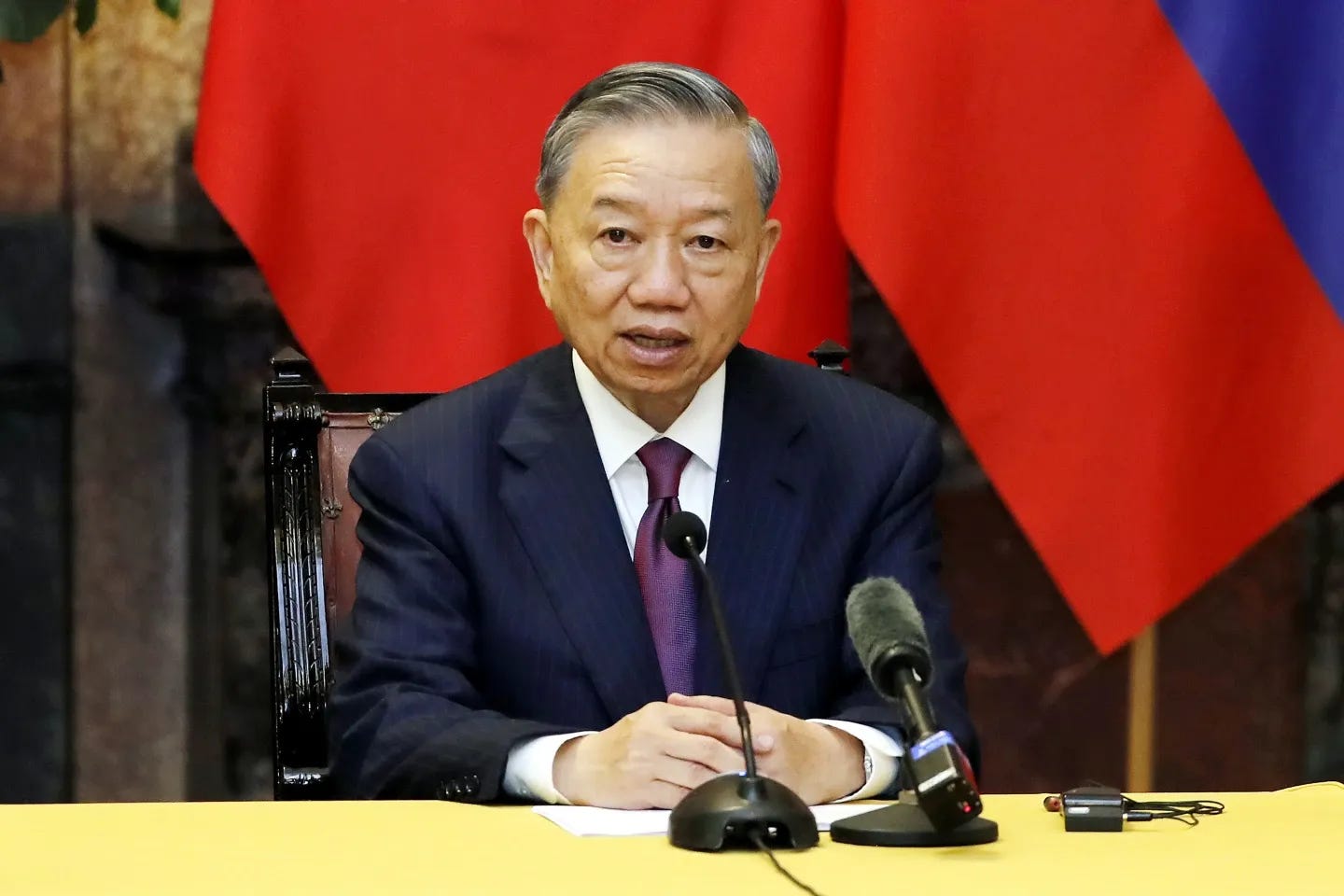
The Paris Olympics faces significant security threats from both ISIS and teenagers radicalized on social media. French authorities are implementing extensive security measures, including a substantial police and military presence, to safeguard the 15 million visitors expected for the Games. (The National)
Myanmar's nominal president, Myint Swe, is suffering from severe health issues, including neurological disorders and malnutrition, which could pose a constitutional challenge for the junta as it relies on him for legitimacy. (Reuters)
North Korea plans to open the Wonsan-Kalma tourism zone by May 2025 despite still blocking most foreign tourists due to sanctions and pandemic restrictions. The site, intended to be a key international attraction, has faced delays from material shortages, but construction is reportedly in its final stages. (CNA)
Thursday
Japanese Prime Minister Fumio Kishida hosted a summit with leaders from over a dozen Pacific Island nations in Tokyo, aiming to enhance cooperation and support for a rules-based Indo-Pacific amid China's growing influence. (AP)
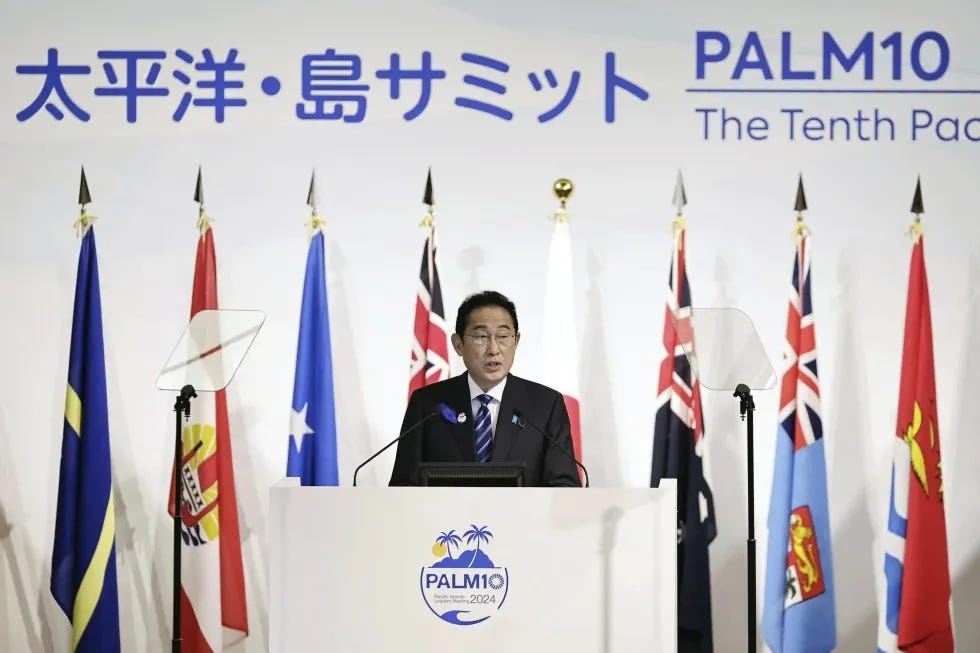
Indian Ambassador Sibi George aims to enhance Japanese investments in India and strengthen supply chain and defense cooperation. (Japan Times)
Thai Foreign Minister Maris Sangiampongsa announced plans for talks with commercial banks to improve transaction screening used for Myanmar junta's weapons purchases. (Bangkok Post)
Selina Cheng, newly elected chair of the Hong Kong Journalists Association, claims she was fired from The Wall Street Journal for refusing to withdraw from the association's leadership election. (Financial Post)
Wednesday
The Asian Development Bank (ADB) raises its 2024 economic growth forecast for developing Asia and the Pacific to 5.0%, attributing the increase to robust regional exports and resilient domestic demand. Inflation is expected to slow to 2.9% due to easing global food prices and higher interest rates. (ADB)
A former CIA analyst has been charged with acting as a foreign agent for South Korea. U.S. prosecutors allege Terry disclosed information to South Korean intelligence officers in exchange for luxury goods and high-end dinners. (FT)
South Korea's military has warned that recent flooding could sweep North Korean land mines across the border. North Korea has added tens of thousands of mines along the border since April, part of efforts to enhance security and prevent defections. (AP)
A North Korean official, Kim Geum Chol, drowned on July 11 while swimming in a pond outside Moscow. Kim, who led a military training delegation to Russia, was identified as the president of the Kim Il Sung Military University. (Arab News)
Tuesday
A threat from Iran led the US Secret Service to enhance protection around Donald Trump before Saturday’s attempted assassination at a rally in Pennsylvania. The attack, resulting in one death and multiple injuries, is believed to be unrelated to the Iranian threat. (Arab News)
Thai police are investigating the deaths of six foreign nationals found in a room at Bangkok’s Grand Hyatt Erawan hotel. Thai Prime Minister Srettha Thavisin has ordered a swift investigation to prevent any negative impact on tourism. (The Strait Times)

A senior North Korean diplomat based in Cuba defected to South Korea in November 2023, citing disillusionment with North Korea’s political system. The defector, Ri Il Kyu, fled with his family before South Korea and Cuba established diplomatic ties in February. (VOA)
Thailand will fund a 500-billion-baht ($13.8 billion) household handout scheme using the 2024 and 2025 budgets. The stimulus program aims to boost the economy by providing 10,000 baht to approximately 50 million Thais for local spending. (CNA)
…


